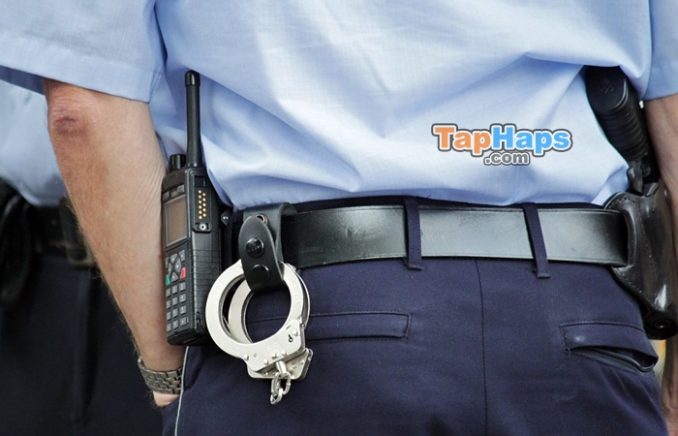While enjoying treats with his friends during his class party, a third-grade boy excitedly began talking about his favorite dessert. However, once school officials heard his request, they immediately called the police on the terrified young boy.

Public schools are implementing extreme policies to ensure that students toe the line in order to refrain from offending anyone. Now, the slightest misstep can soil a child’s record simply because another student was offended by it. Stacy Dos Santos and her son discovered this firsthand.
Unsurprisingly, racism has become a hot-button issue, even in elementary schools, where students are far too young to understand this concept. Sadly, their innocence and naivety haven’t stopped politically-driven officials from projecting racism and unconscious bias upon them.

During a third-grade class party at William P. Tatem Elementary School, Collingswood Police officers were called out to investigate an incident involving one of the students. Shockingly, a 9-year-old boy had been accused of spewing racist rhetoric, prompting the teacher to immediately contact the department. Incredibly, it was the simple comment that the clueless child made that landed him in the center of a disturbing and controversial investigation.
According to reports, the third-grader, who remains unnamed, had the police called on him after he was accused of making a “racist” remark. The comment in question was, according to his mother, nothing more than him excitedly mentioning his favorite dessert “brownies” being served in the classroom.

The 9-year-old boy’s mother Stacy Dos Santos claims that the local police arrived at the school and interrogated her son over his comments. She claims that the teacher who called the police misinterpreted her son’s remarks about the baked goods, assuming he was using a racial slur concerning darker-skinned individuals.
“He said they were talking about brownies. . . . Who exactly did he offend?” Stacy asked.
The school contacted the boy’s father later that day, stating that the police had been called on his son and that an investigation had been referred to the New Jersey Division of Child Protection and Permanency. Dos Santos claims that her son was “traumatized” by the investigation.

Stacy Dos Santos explained that her son, who is half-Brazilian from his father’s side, has suffered from the speculation of the teacher. She added that the school has a policy in place that requires officials to contact the police instead of dealing with situations themselves.
“I’m not comfortable with the administration [at Tatem]. I don’t trust them and neither does my child,” she said. “He was intimidated, obviously. There was a police officer with a gun in the holster talking to my son, saying, ‘Tell me what you said.’ He didn’t have anybody on his side.”
Due to the state’s Memorandum of Agreement, the school district immediately turns over all instances of perceived offense over to the local police department and family services, no matter how trivial. This means that even the slightest accusation can earn a child and their family an invasive investigation just like the one Dos Santos has been forced to undergo.

Superintendent Scott Oswald admitted that officers are called out to investigate matters in the school district as many as five times per day. The uptick in incidents involving police intervention has sparked concern and outrage among parents, prompting the school to look into their policy. Police Chief Kevin Carey explained that his officers are called over “as minor as a simple name-calling incident that the school would typically handle internally.”
Additionally, Collingswood school board president David Routzahn confirmed that the prosecutor’s office “defines almost every issue as a ‘potentially criminal issue.'” It is this reality that has parents worried that their children’s school and criminal records will be ruined by something as trivial as a disagreement with a classmate.
“It is unfathomable to us that the (prosecutor’s office) believes that having uniformed police officers responding to incidents of name-calling or a second-grade playground shove is appropriate for the children or taxpayers of Collingswood,” Routzahn wrote.

The school has stated that the accusations made by Dos Santos are entirely “false.” However, when asked about details concerning the incident and subsequent police investigation, the school refused to further comment.
Dos Santos explained that she wants an apology from the school and for the district to change the way it deals with non-criminal issues involving its students. She and others don’t believe that such incidents should involve the police, as it not only negatively affects the children but wastes the officers’ time and efforts.
Source: Tap Worthy Happenings
0 Comments